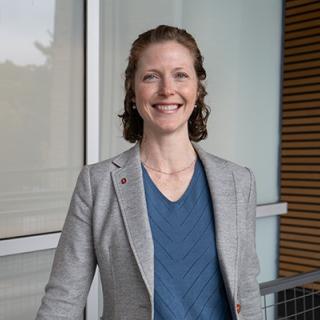This 3 credit hour course is offered Fall and Spring Semesters on Tuesdays and Thursdays: 11:10-12:30 PM
Course Description
Technology is woven into the fabric of our lives and society. It has enabled us to stay connected with each other over long distances, expand educational opportunities, and realize more efficient and sustainable energy solutions. However, new technologies have also accelerated the spread of violent ideologies and misinformation, undermined democratic elections, and facilitated the climate-changing industrial activity that revolutionized the world.
Science, engineering, and technology are tools: their effects – good and bad – depend on human use. In this course, we explore current issues in science, engineering, and technology (SET) policy through the lens of citizenship and social welfare in order to establish the foundational understanding of how we can use SET to address complex problems and innovate in the public’s interest.
This survey course will provide a fast-paced introduction to these realities using examples drawn from contemporary events and analyses. This course emphasizes applied research activities – in both independent and team-based efforts – carried out over the semester with frequent feedback from peers and faculty.
Students will explore the ethical, social, historical, and psychological dimensions of science, engineering, and technology and reflect on their individual values and role as informed citizens. Course content and activities help students develop understanding of diverse perspectives on the role of SET in citizenship and notions of justice, both globally and in the U.S. In addition to gaining familiarity with core issues, processes, and frameworks in the SET policy and citizenship, students will develop skills in the policy sciences and their associated research methodologies, including identifying, analyzing, and communicating innovative solutions to a range of policy audiences. This is a foundational course of the Glenn College’s Science and Engineering in the Public Interest (SEPI) minor, a GE in the Citizenship theme, and a valuable experience for STEM majors who are interested in using their skills to build a more just, resilient, and healthy society.
Course Objectives
Upon successful completion of this introductory survey course, students will:
- Grasp the breadth of science and engineering endeavors that have public policy dimensions and appreciate the diversity of interdisciplinary nature of public affairs
- Demonstrate a firm grasp of basic public affairs concepts and tools employed in this space, specifically
- Governmental, financial, economic, legal, and political institutions and systems that constitute public and nonprofit sectors
- Public sector policy making and administrative processes
- The role of citizenship and ethical public service in a democratic process
- Practice essential professional skills that form the basis for engaging in science, engineering, and technology policy, specifically:
- Recognize and interpret human behavior — individual, group, and organizational — in the context of the public and nonprofit sectors
- Define and address problems in the public nonprofit sectors using analytical tools
- Communicate effectively via written oral, and electronic methods
- Appreciate individual and group differences in perspectives, backgrounds, interests, and needs

